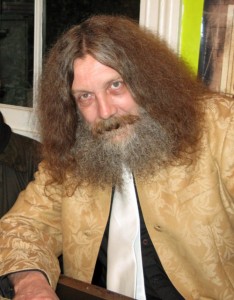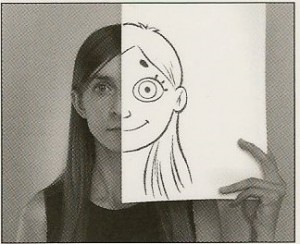 Comic Book Grrrl‘s Laura Sneddon did a 1,000 word article for The Independent a week and a half ago recapping an interview with Alan Moore, which is an astounding feat to me considering I can’t get angry about a 20-page Flash comic in less than 1,300 words.
Comic Book Grrrl‘s Laura Sneddon did a 1,000 word article for The Independent a week and a half ago recapping an interview with Alan Moore, which is an astounding feat to me considering I can’t get angry about a 20-page Flash comic in less than 1,300 words.
But apparently her interview with Moore went on for about an hour, and she has posted an uncut transcript of the entire interview on her Website. Let’s take a look… and while we’re doing it, let’s try to forget that “Uncut Alan Moore” would be an excellent title for an Axel Braun Watchmen porno, shall we?
So I think that might end up being one of the subtexts of Century as a whole, that it will be just this slow degradation of culture, you know sort of in the space of a hundred years. I mean that’s one of the things that’s most extraordinary about reading and writing Century as a volume, is that yeah one hundred years, that’s living memory. And yet we’ve somehow gone from the waterfronts that Brecht was writing about in 1910 all the way to the present day, and everything that that means…
I think we kind of, we risk simply losing genuinely valuable parts of society and culture because of our fascination with lights and bells and whistles. I blame a lot of culture, I found myself half way through one of my unfathomable rants the other night, you know where I suddenly sort of think, what am I actually saying? And it turned out what I was saying was that I blame most of Western culture upon the manufacturers of children’s cot mobiles. Simply because I think that they have programmed a couple of generations to be entertained by something if it’s moving and if it’s making a noise.
Sorry, Alan; could you repeat that? I was distracted by something moving and making a noise. Her name’s Sasha. Welcome to the Internet, where you are competing with her.


 Podcast RSS Feed
Podcast RSS Feed iTunes
iTunes Google Play
Google Play Stitcher
Stitcher TuneIn Radio
TuneIn Radio Android
Android Miro Media Player
Miro Media Player Comics Podcast Network
Comics Podcast Network